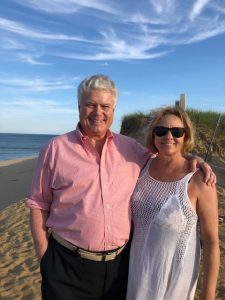Swirling around, swept into the air like dry leaves before a great storm, we’re tossed about by forces we invented but no longer control. The wind rules, picking us up and taking us where it blows. Busy. Fast. Wired. Going who knows where. Welcome to our crazybusy world.
Today I encourage you to take a few moments to pause and reflect on the beauty that surrounds us – the colors, the crispness in the air, the sunshine and more. Listen to my Distraction mini podcast “An Ode to Autumn” and learn why Autumn is my favorite season of the year. What is yours?
Are you saying to yourself, “I’m too busy to pause and take in the colors of autumn?”
If yes, then click here to learn how to take back control of your time in this Crazybusy world.
For those of you who like great poetry, I recommended this poem by John Keats in my podcast:
To Autumn
Season of mists and mellow fruitfulness,
Close bosom-friend of the maturing sun;
Conspiring with him how to load and bless
With fruit the vines that round the thatch-eaves run;
To bend with apples the moss’d cottage-trees,
And fill all fruit with ripeness to the core;
To swell the gourd, and plump the hazel shells
With a sweet kernel; to set budding more,
And still more, later flowers for the bees,
Until they think warm days will never cease,
For Summer has o’er-brimm’d their clammy cells.
Who hath not seen thee oft amid thy store?
Sometimes whoever seeks abroad may find
Thee sitting careless on a granary floor,
Thy hair soft-lifted by the winnowing wind;
Or on a half-reap’d furrow sound asleep,
Drows’d with the fume of poppies, while thy hook
Spares the next swath and all its twinéd flowers:
And sometimes like a gleaner thou dost keep
Steady thy laden head across a brook;
Or by a cyder-press, with patient look,
T
hou watchest the last oozings hours by hours.
Where are the songs of Spring? Ay, where are they?
Think not of them, thou hast thy music too,—
While barréd clouds bloom the soft-dying day,
And touch the stubble-plains with rosy hue;
T
hen in a wailful choir the small gnats mourn
Among the river sallows, borne aloft
Or sinking as the light wind lives or dies;
And full-grown lambs loud bleat from hilly bourn;
Hedge-crickets sing; and now with treble soft
The red-breast whistles from a garden-croft;
And gathering swallows twitter in the skies.
 Greetings from Wellfleet, on Cape Cod. It’s a Sunday, the weather is generously beautiful, and I’m here for a week with my wife, Sue, and various relatives and guests to teach the course I’ve been teaching for how many summers now, is it 15?, to finish up the new book about ADHD John and I have been working on for quite a while, and to have fun.
Greetings from Wellfleet, on Cape Cod. It’s a Sunday, the weather is generously beautiful, and I’m here for a week with my wife, Sue, and various relatives and guests to teach the course I’ve been teaching for how many summers now, is it 15?, to finish up the new book about ADHD John and I have been working on for quite a while, and to have fun.





